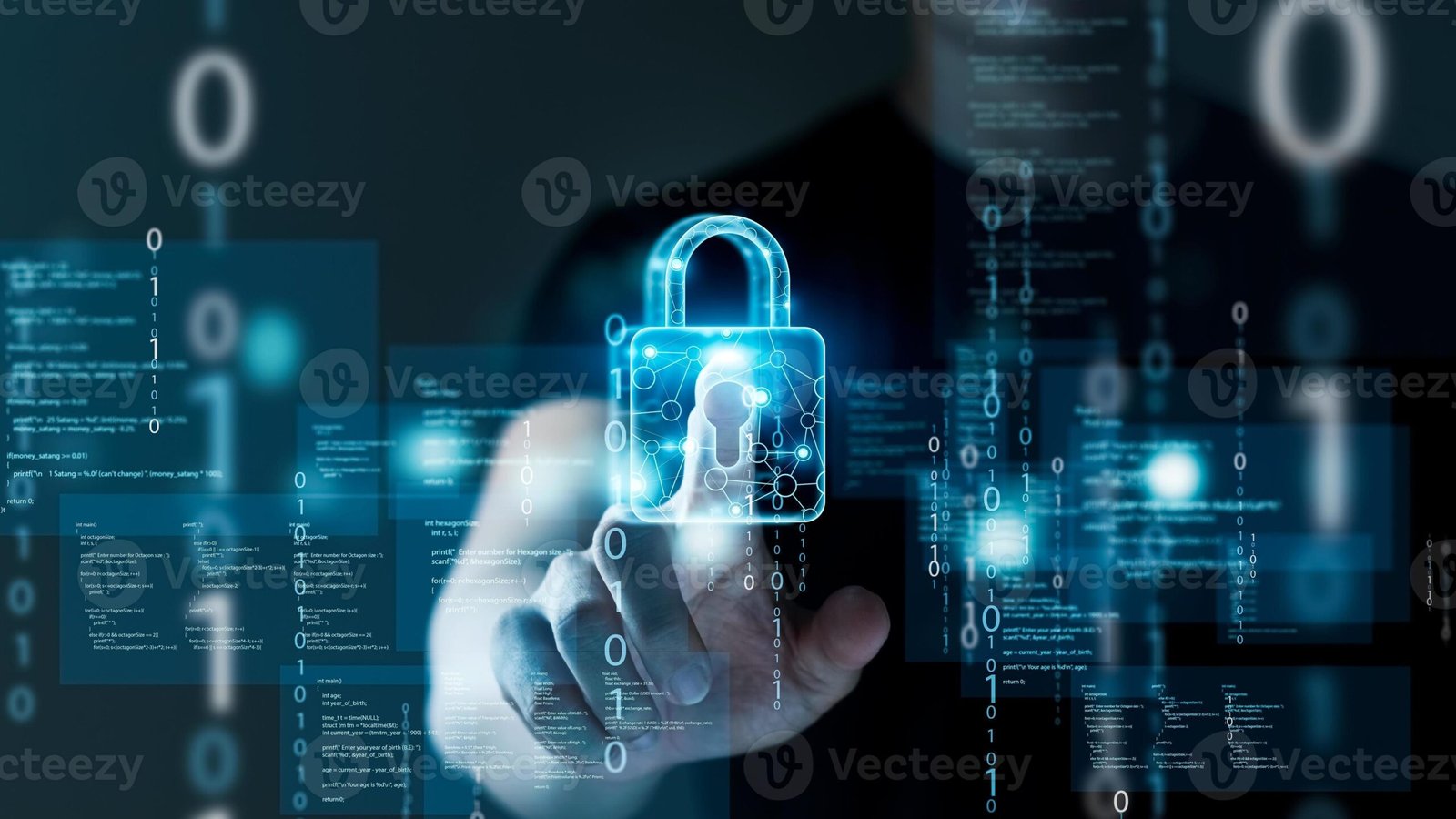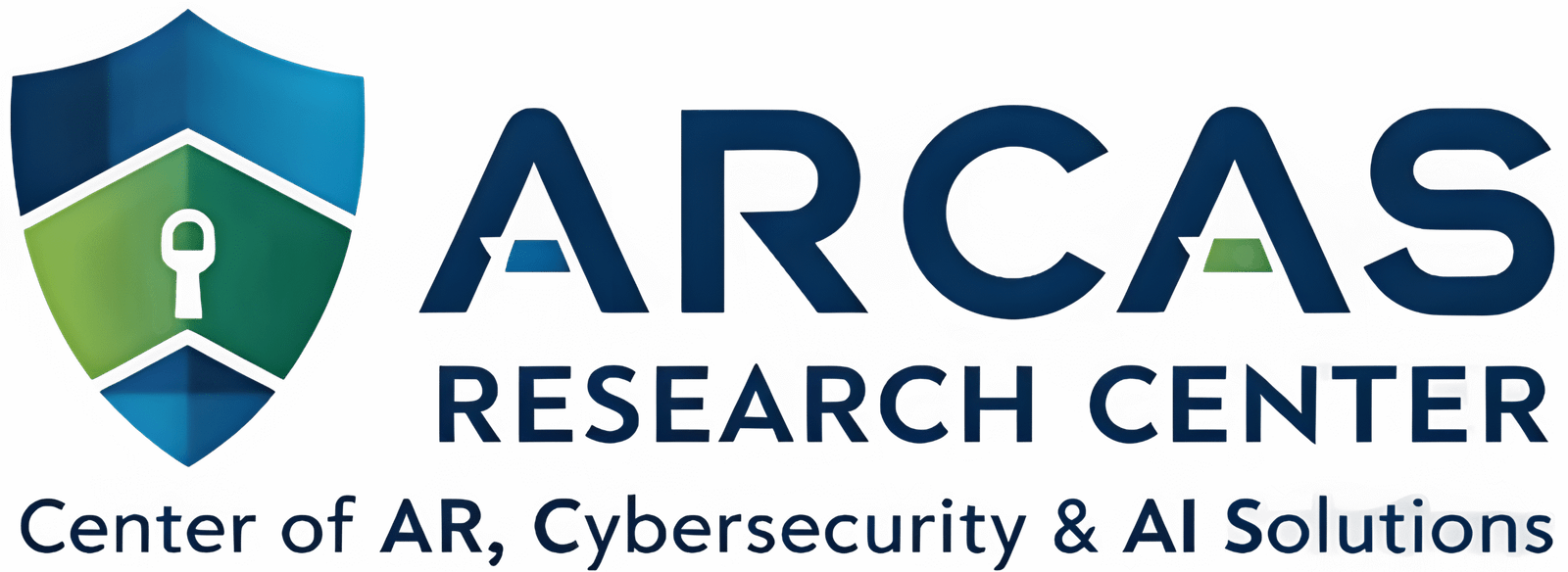The increased adoption of smart systems and digital technologies, in general, presents everlasting security challenges. We are becoming so dependent on technology that security breaches are proved to have detrimental effects on individuals as well as organizations. In the case of smart systems, imagine the effects compromising the security of a smart home or a smart hospital can have on people and services! ARCAS research takes a holistic approach to cybersecurity, considering tools, processes and people. The center researches a wide spectrum of cybersecurity from the human factor in IoT networks through anomaly and intrusion detection to biologically inspired and AI-based solutions for secure and resilient systems in different environments, including cloud/edge networks, smartphones and health environments.
ARCAS Center is committed to establishing world-class facilities for cybersecurity research that will serve as a hub for innovation, knowledge, and collaboration. These facilities are designed not only to support cutting-edge research but also to create an ecosystem where technology, academia, and industry can converge. By focusing on managing risks, driving innovation, and supporting product development, the center ensures that its work has a direct and meaningful impact on society.
Collaboration with critical infrastructure organizations is a central component of ARCAS’s vision. By working closely with sectors such as healthcare, finance, transportation, and energy, the center provides cybersecurity solutions that are practical and scalable. Another essential goal of ARCAS is to train highly skilled cybersecurity professionals who will form the backbone of future security efforts. These professionals are prepared through a combination of theoretical knowledge, hands-on research, and exposure to real-world case studies, ensuring they are capable of addressing emerging challenges in the digital world.
lockchain technology forms the second research track within ARCAS’s cybersecurity strategy, with a strong emphasis on security and privacy. At its core, blockchain is a decentralized ledger that records transactions in a chronological sequence of blocks. This structure ensures immutability, transparency, and trust, as no single entity has absolute control over the data. Instead, ownership and validation are distributed among all network participants.
Despite these strengths, blockchain is not without challenges. Its reliance on cryptographic algorithms and consensus mechanisms makes it vulnerable to issues such as scalability, energy consumption, and new forms of cyberattacks. ARCAS focuses on strengthening blockchain’s defenses against such vulnerabilities by designing more resilient architectures and privacy-preserving protocols. The center also investigates how blockchain can balance openness and transparency with the growing demand for personal data protection.

Data Protection
Network Security
Cloud computing has revolutionized the way data is stored, accessed, and managed. It offers cost-effectiveness, scalability, and flexibility, which makes it a preferred solution across industries. However, these benefits come with significant security and privacy concerns. Centralized cloud storage often leaves data vulnerable to breaches, insider threats, and unauthorized access.
ARCAS envisions blockchain as a solution to these limitations. By incorporating distributed ledgers into cloud environments, blockchain provides mechanisms for secure resource management and data tracking. This decentralized approach reduces the reliance on third-party authorities, thereby increasing trust and resilience. In addition, blockchain allows users to verify the authenticity of stored data, ensuring transparency in the way cloud providers handle sensitive information.
he rapid expansion of IoT devices has created a hyper-connected world where sensors, machines, and smart devices constantly exchange information. While this brings efficiency and convenience, it also exposes systems to new security vulnerabilities. A compromised IoT device can act as a gateway for larger-scale cyberattacks, threatening user safety and privacy.
Blockchain offers a promising solution by providing a secure framework for data exchange in IoT networks. Its immutable and decentralized nature ensures that device interactions are authenticated, monitored, and resistant to tampering. ARCAS research in this domain emphasizes building blockchain-enabled IoT frameworks that can withstand large-scale attacks and enhance the resilience of smart systems in homes, industries, and healthcare environments.
One of the major challenges in blockchain research is maintaining privacy without compromising transparency. While blockchain ensures openness, many users are concerned about their personal data being publicly accessible. ARCAS investigates advanced privacy-preserving techniques, such as zero-knowledge proofs and secure multiparty computation, to protect sensitive information.
By implementing these methods, blockchain can continue to provide accountability while keeping user identities and transaction details secure. This area of research is particularly important in financial systems, healthcare, and government applications, where data confidentiality is critical.
The global adoption of blockchain spans diverse industries such as finance, logistics, healthcare, and education. However, with its growing use comes the emergence of sophisticated cyberattacks targeting blockchain systems. ARCAS studies real-world use cases to identify patterns of adoption and analyze vulnerabilities.
Through this research, the center develops defensive strategies that strengthen blockchain ecosystems against both known and emerging threats. This proactive approach not only secures existing applications but also provides guidelines for safer blockchain adoption in new sectors.
Digital identity management is a pressing issue in cybersecurity. Traditional methods, such as passwords and centralized databases, are increasingly vulnerable to breaches. ARCAS is researching blockchain-based solutions that enhance authorization and authentication processes.
By leveraging distributed ledgers, these solutions eliminate single points of failure and ensure that only authorized individuals gain access to protected systems. This approach improves trust in identity verification processes and provides a secure foundation for digital interactions in sectors like banking, government, and healthcare.
The proliferation of misinformation and fake news poses social, political, and security risks worldwide. ARCAS explores how blockchain can combat this problem by ensuring the authenticity of information sources. Since blockchain records are immutable, they can provide reliable evidence of data origin and prevent the alteration of content.
This line of research aims to create systems where news and digital media can be verified against blockchain records, significantly reducing the impact of misinformation on society.
Blockchain for Cyber-Physical Systems
ARCAS investigates how blockchain can secure critical infrastructures like energy, transportation, and industrial systems. By ensuring data integrity and transparent monitoring, blockchain enhances the resilience of systems that directly impact public safety.
Blockchain Applications in Healthcare
Healthcare systems handle sensitive data that must remain private and accurate. ARCAS explores blockchain solutions that give patients control over their records, prevent unauthorized access, and improve data sharing across hospitals and clinics, ultimately boosting trust in digital healthcare.
Blockchain for Smart Cities
Smart cities depend on interconnected digital infrastructures for services such as transport and energy. ARCAS applies blockchain to safeguard these systems, creating tamper-proof data frameworks that enhance safety, sustainability, and resilience against cyberattacks.
Overall Contribution
Together, these research areas highlight blockchain’s transformative potential across critical sectors. By securing infrastructures, protecting healthcare data, and reinforcing smart city systems, ARCAS demonstrates how blockchain can build safer, more transparent, and more resilient societies.

ARCAS research center sits within the MUBS university, but works closely with other research centers across the globe. The center’s themes are cross-cutting research domains; therefore, we are working closely with other research centers/groups within the University, fostering interdisciplinary research. Our vision is to carry out world-leading theoretical and applied research within the center’s defined themes, and with our expertise, we will work with partners and foster international collaboration and knowledge exchange. The main research themes for the center are Augmented Reality, Artificial Intelligence and Cybersecurity.

Artificial intelligence (AI) represents a dynamic sector for research centers dedicated to enabling machines to mimic human behavior, effectively automating intelligent actions. This fascinating field encompasses a variety of applications, including strategic game playing, sophisticated expert systems, advanced natural language processing, and innovative robotics. In ARCAS, AI is broadly categorized into two primary projects, each with its unique focus and methodologies.

ARCAS research center sits within the MUBS university, but works closely with other research centers across the globe. The center’s themes are cross-cutting research domains; therefore, we are working closely with other research centers/groups within the University, fostering interdisciplinary research. Our vision is to carry out world-leading theoretical and applied research within the center’s defined themes, and with our expertise, we will work with partners and foster international collaboration and knowledge exchange. The main research themes for the center are Augmented Reality, Artificial Intelligence and Cybersecurity.
Center of Augmented Reality, Cybersecurity, and
Artificial Intelligence Solutions (ARCAS) is a hub for
advancing knowledge and fostering collaboration in the
critical field of cybersecurity and AI. Here, researchers
explore the exciting potential of artificial intelligence to
create powerful new defenses against cyber threats.


er old collecting she considered discovered. So at parties he warrant oh staying. Square new horses and put better end.
09:00 Am - 11:00 Pm
© 2024 Created with Royal Elementor Addons